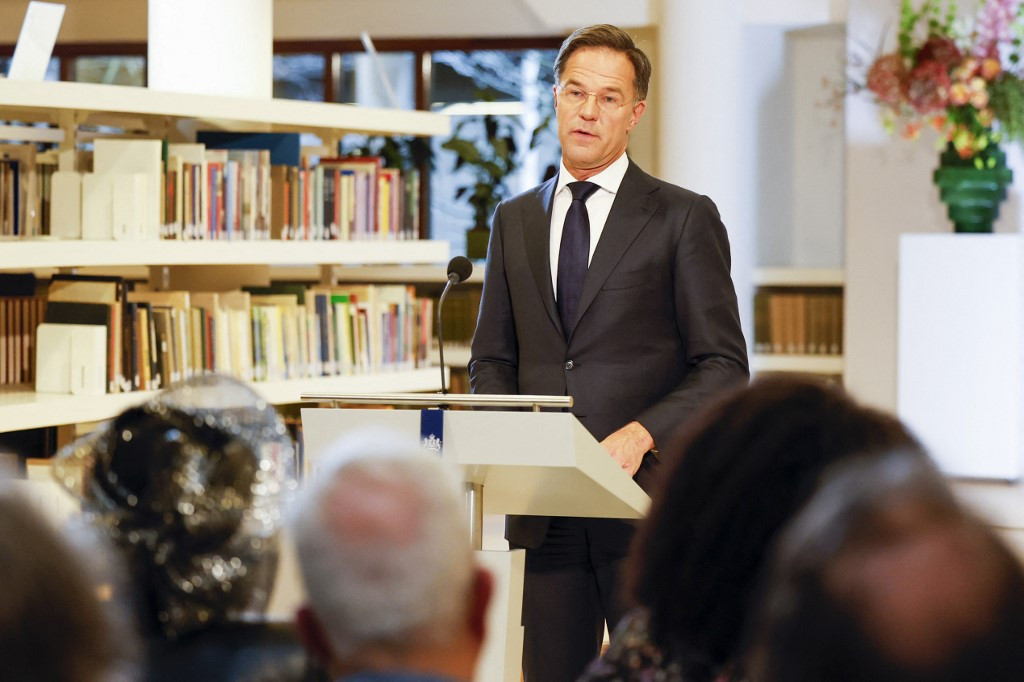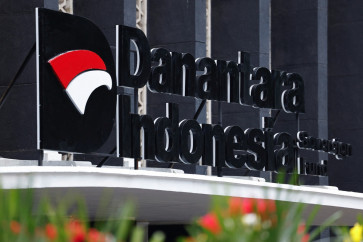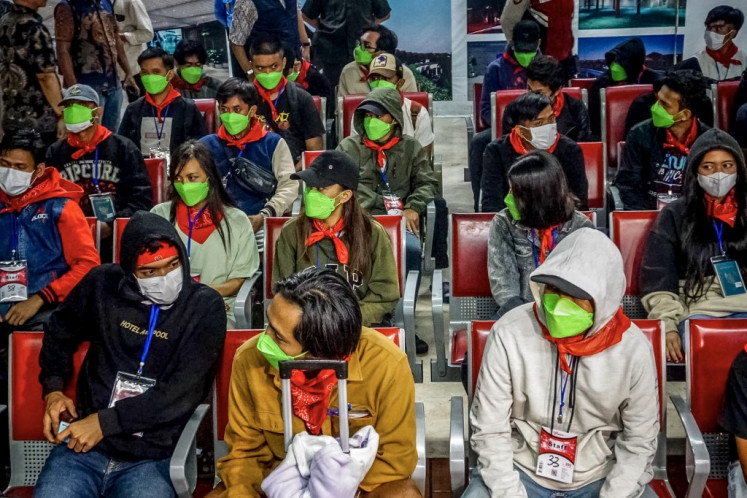Popular Reads
Top Results
Can't find what you're looking for?
View all search resultsPopular Reads
Top Results
Can't find what you're looking for?
View all search resultsDutch mea culpa rings hollow in Indonesia
Change text size
Gift Premium Articles
to Anyone
I
ndonesia has responded tepidly to a speech made by Dutch Prime Minister Mark Rutte apologizing for 250 years of slavery in the country’s former colonies, saying the country needs to do more than simply offer a mea culpa for its role.
In a 20-minute speech on Monday, Rutte apologized to the country’s former colonies, particularly seven Caribbean states: Suriname, Curaçao, St Maarten, Aruba, Bonaire, Saba and St Eustatius. Calling the Dutch slave trade an unimaginable “criminal system [...] so inhuman and unjust”, Rutte announced a fund for social initiatives in Curaçao, St Maarten, Aruba and Suriname.
Indonesia, a former Dutch colony where slavery was practiced, was not explicitly mentioned, except for the acknowledgement that “between 660,000 and over 1 million people [...] were traded within the areas under the authority of the Dutch East India Company [VOC]”.
“Rutte’s speech does not mention Indonesia. In the English and Dutch versions of his speech, he only mentioned the Caribbean countries. So from the point of view of the foreign minister – and we on House of Representatives Commission I approve of this view – [the speech] was more political and made to cater PM Rutte’s domestic needs,” said TB Hasanuddin, a senior Indonesian Democratic Party of Struggle (PDI-P) legislator who sits on the House’s foreign affairs commission.
Indonesia, he said, would only make an official response if the Dutch prime minister sent an official diplomatic letter to acknowledge the atrocities committed by Dutch troops and the country’s complicity in the practice of slavery and racism in Indonesia.
The Foreign Ministry is awaiting more information about the speech from its mission in The Hague before issuing any statements, according to ministry spokesman Teuku Faizasyah.
Beyond an apology
Indonesia needed more than just an apology, said Golkar Party executive Nurul Arifin, noting that many priceless Indonesian cultural assets were still held by the Netherlands and that the colonial power had exploited the region’s natural wealth.
“There are a lot of natural resources of the former Dutch colonies that they plundered,” she said. “This is something that should be talked about. They are heavily indebted [to their former colonies] after extracting their resources.”
A number of Indonesians continue to take issue with the fact that the Netherlands does not officially recognize Aug. 17, 1945 – the day Sukarno proclaimed the nation’s independence – as Indonesia’s independence day. The Dutch government acknowledges a later date, after the war of independence.
“The Indonesian government needs to follow up […] on the apology speech, on the de jure recognition of Indonesia’s independence on Aug. 17, 1945,” said People’s Consultative Assembly (MPR) deputy speaker Hidayat Nurwahid. “There are many things that need clarifications and many interests that need to be fought for.”
Airlangga University historian Purnawan Basundoro suggested the apology speech could have been part of a strategy to avoid possible demands for reparations.
“If there is a dialogue to acknowledge their atrocities, there will be consequences, there will demands for compensation. Rutte knows this,” he said. “That said, the Dutch need to mention it in their official history. There should be more than just an apology.”
Rutte’s speech, made ahead of ministerial visits to the Caribbean, has received its share of criticism both among Dutch citizens and those on the receiving end of the apology. Some experts have claimed the text employed colonialist language stemming from the prime minister’s lack of consultation with the Caribbean nations.
While 200 million euros (US$12,830.29) have been pledged for awareness projects and an additional 27 million euros were allocated to a slavery museum, some observers claimed Rutte’s refusal to consult with former colonies before delivering the speech indicated efforts to sidestep a discussion of reparations.
Dark history
Rutte’s speech, nonetheless, has sparked a difficult conversation about the institution of slavery in the archipelago.
In the 16th century, the VOC was among the largest slave traders in the world, selling humans across the Atlantic and in Asia. In Indonesia, slaves were sold to and from South Africa, India and Sri Lanka, with the most sought after including bondsmen from Ambon, Ternate, Bali and Borneo.
A considerable proportion of the slaves were those who were captured in ethnic wars and sold by the victorious kingdoms.
But none of the aforementioned facts are common knowledge in Indonesia.
“Much of the accounts of slavery during the colonial era are kept in the national archives. They are inaccessible to anyone, meaning that researchers and experts are left with little to work with,” noted Bondan Kanumoyoso, dean of the faculty of cultural sciences at the University of Indonesia (UI).
So limited was the official data, Bondan noted, that even the numbers Rutte had used in his speech would require considerable additional research.
“We have to approach this topic with the utmost clarity. The narrative about Dutch slavery in Indonesia has not been researched fully. There needs to be an honest discourse about the dark practice,” Purnawan said.










